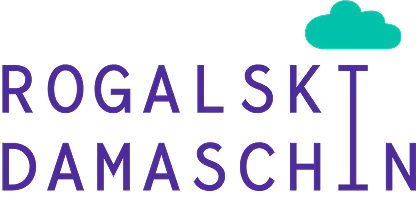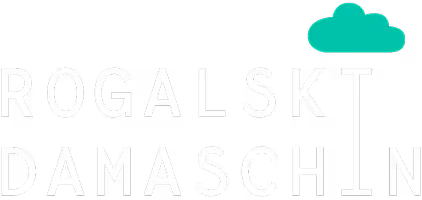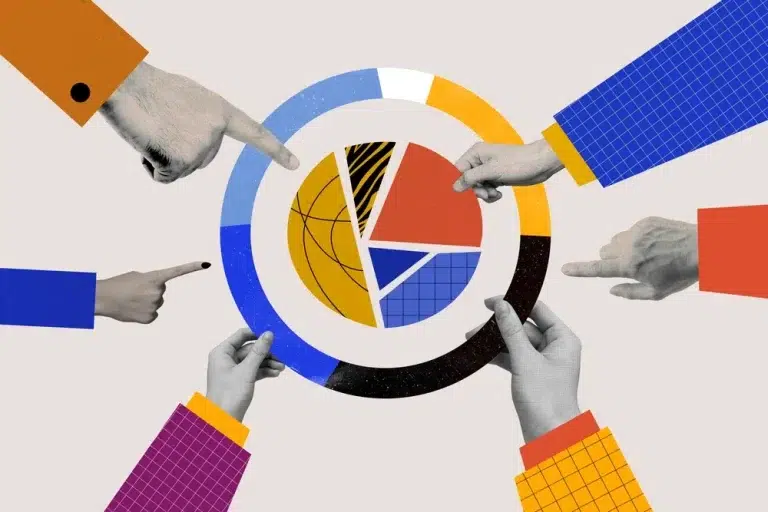
Crises of 2025: Which industries are most at risk of experiencing reputational crises and what measures companies can take
- Rogalski Damaschin conducted the “Crises of 2025” research earlier this year within the Insight Lab, a platform designed to support brands and communication professionals with data-driven insights.
- The research was conducted with the help of a questionnaire addressed to journalists, a tool through which the agency aimed to anticipate the risks that can generate communication crises with an impact on the reputation of companies in Romania, in the current political and economic context.
- The research results show that, at the moment, there are no industries completely immune from the risk of facing crises that damage their reputation, but that some areas are much more exposed than others to possible crises.
What should you do in a crisis situation? To react immediately or not? How can brands prepare for possible reputational crises in 2025? Starting from such questions, Rogalski Damaschin publishes the report “The crises of 2025", which contains the results of a research on the reputational vulnerabilities that companies may face this year.
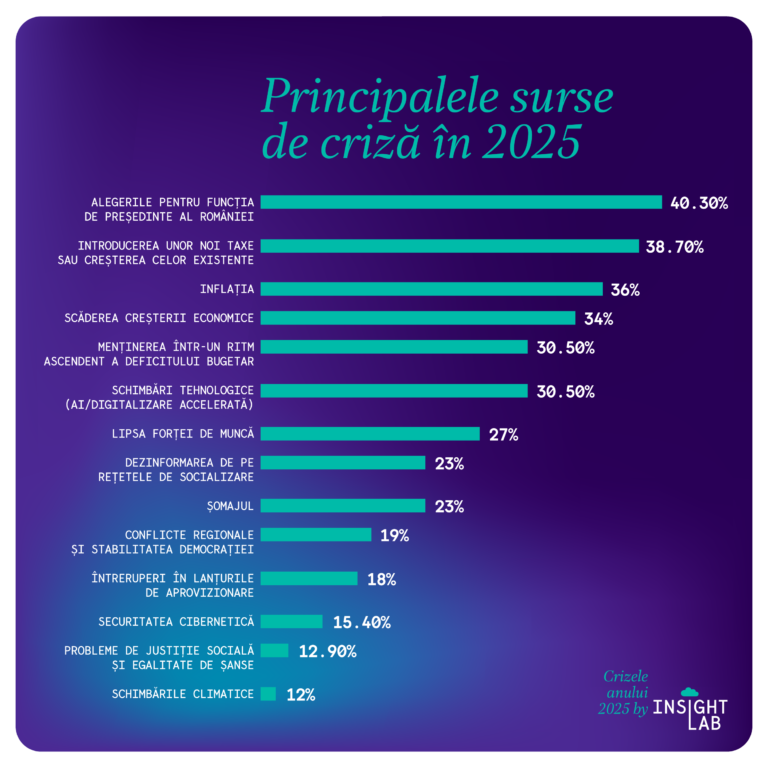
Analysis of the risk of reputational crises for companies in 2025
The research, carried out by the PR agency within the Insight Lab platform, aims to provide essential data for professionals in the field so that they help companies adapt their communication strategies to current needs.
The study was conducted at the beginning of 2025, based on the opinions of journalists and publications from various fields, in a context marked by important political and economic changes.
Rogalski Damaschin wanted to find out which industries are most at risk of going through reputational crises in 2025 and to provide valuable information on the basis of which brands can prepare for such situations.
Research results show that all industries are at risk of reputational crises, but the most vulnerable are systemic ones. These are those that ensure the functioning of the economy at the macro level, as well as those that do not rely on the local company narrative or that create jobs for Romanians.
To deal with crises, brands need to prepare a set of tools with which to be able to improve communication with the public.
The main source of crisis for the business environment in 2025 — the presidential election
The presidential election scheduled for May is seen by 40.30% of respondents as the main factor that will have an impact, in the next 12 months, on the business environment.
Along with the uncertainty brought by the election campaign period and the upcoming elections, other potential triggers of crises in the business field are:
- introducing new taxes or increasing existing ones (38.70%)
- inflation (36%)
- Decrease in economic growth (34%).
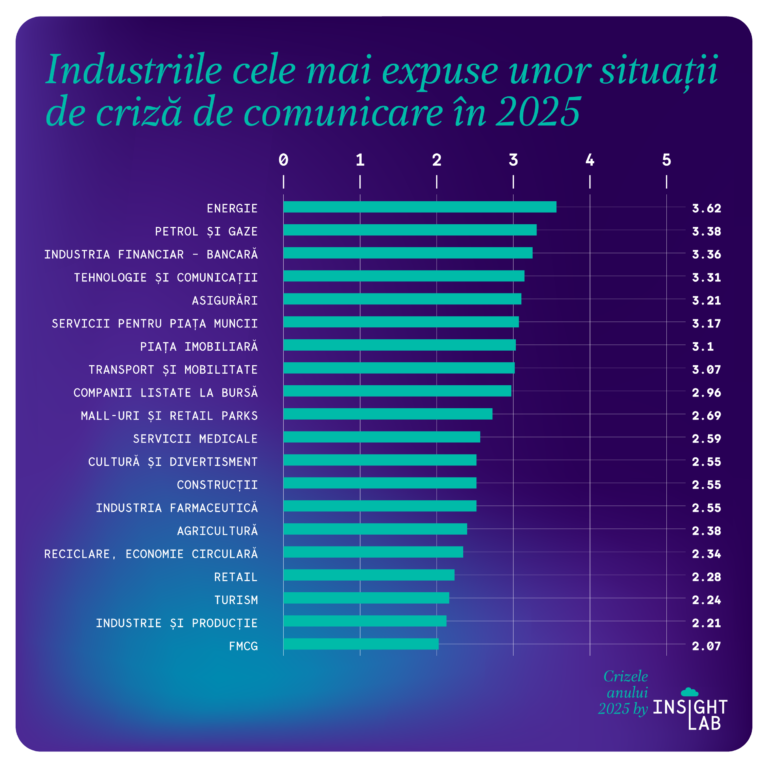
Industries most exposed to possible communication crises
The results of the research also show that, in the opinion of journalists, the industries least protected from the danger of crises, in 2025, are those affected by economic measures already announced or prepared by the Government, i.e.:
- energy (score 3.62)
- oil and gas (3.38)
- financial industry — banking (3.36)
- technology and communications (3.31)
- insurance (3.21)
- labour market services (3.17)
- real estate market (3.1)
- transport and mobility (3.07).
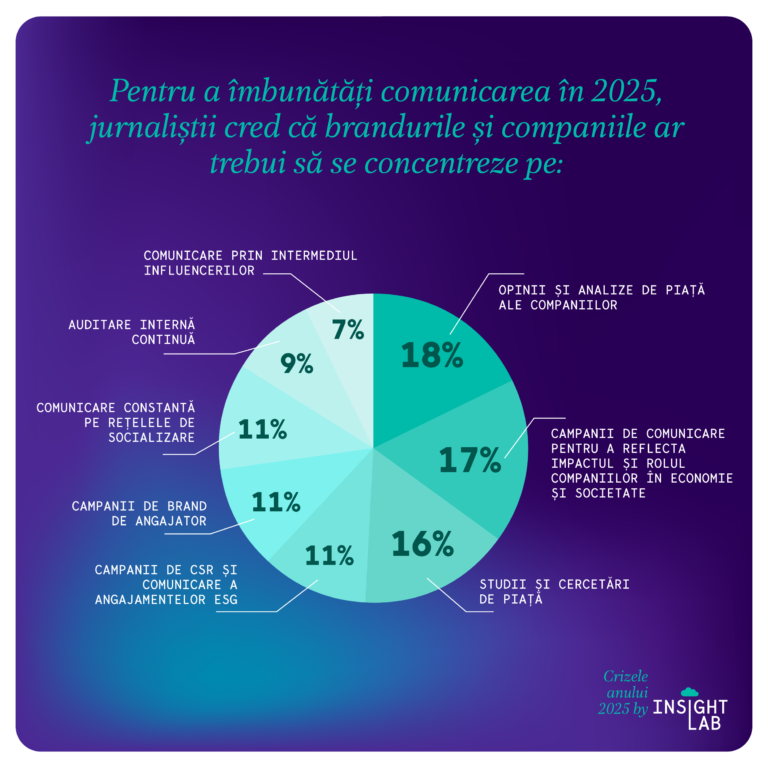
How companies can communicate more effectively with the public in crisis situations
Faced with potential crises affecting the reputation of brands in Romania, they have at hand a set of tools that they can use to streamline their communication with the public.
According to the respondents, the most useful are:
- opinions and market analysis of companies
- communication campaigns aimed at showing the impact and role of companies in the economy and society
- market studies and research
- CSR campaigns and communication of ESG commitments
- employer branding campaigns
- constant communication on social networks.
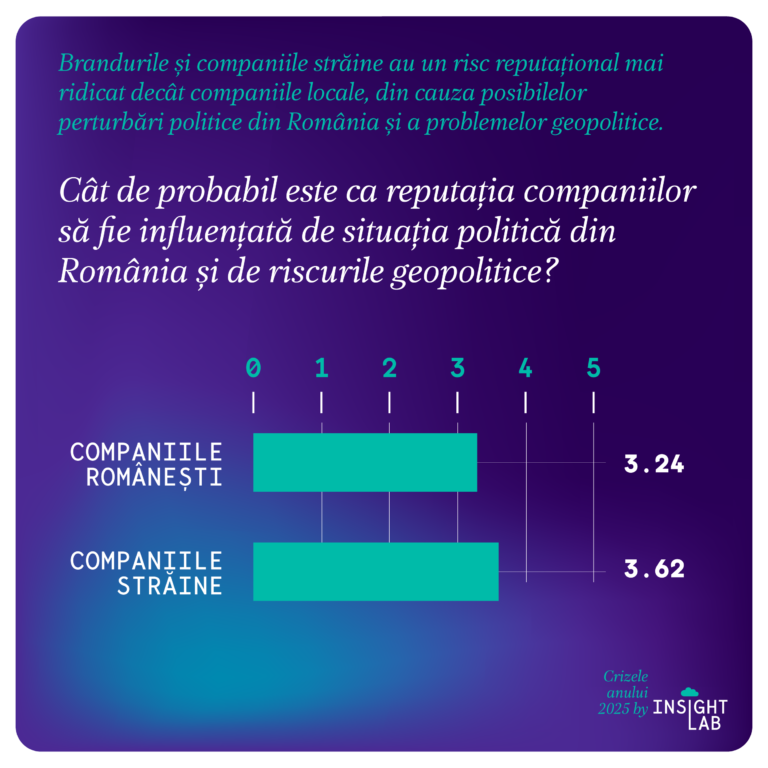
How Romanian companies are perceived by the public compared to foreign companies
Journalists were also asked whether the political situation in Romania and geopolitical risks influence the public's perception of Romanian and foreign companies present in our country.
When asked about local companies, a final score of 3.2 out of 5 was recorded, where 5 represents total agreement, and in the one about foreign companies, the score was 3.6 out of 5.
The results indicate that Romanian brands can have an advantage over international ones in consumer perception, against the background of narratives in the public space and the Romanian/foreign polarization, which was accentuated during the 2024 election campaigns.
In this context, Rogalski Damaschin comes up with a series of recommendations that lead to strategies to increase the resilience of companies in all industries.
Read the full report “The crises of 2025”and the PR agency's recommendation set, as well as the first Insight Lab branded report — Press Releases in the Age of Algorithms
Three frequently asked questions about reputational crises
- What does a reputational crisis mean for a company?
A reputational crisis occurs when a company's public image is affected by negative events, fake news or communication errors. It manifests itself in a decrease in customer confidence, negative reactions in the press and on social networks. - Why is it important for a company to have a communication plan for crisis situations?
A well-structured communication plan helps the company respond quickly and coherently, reduce negative impact and regain the trust of the public. - How can a PR agency help manage a reputational crisis?
A PR agency offers expertise in media monitoring, message formulation, managing the relationship with the press, and implementing effective communication strategies.
